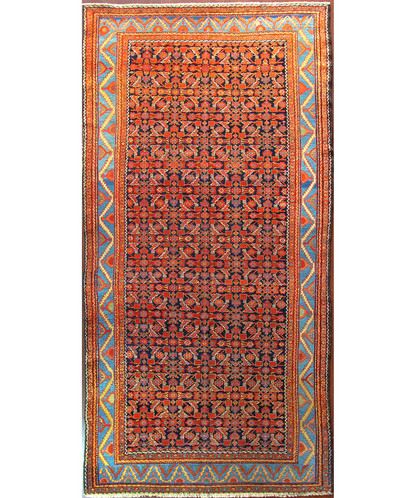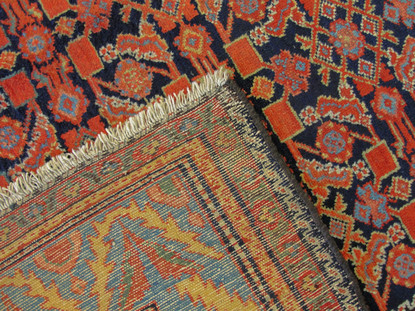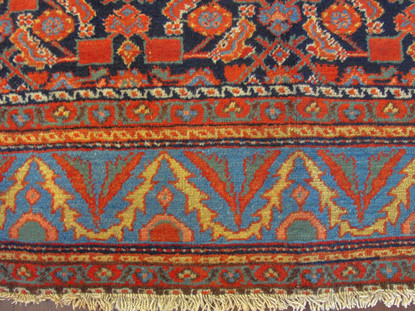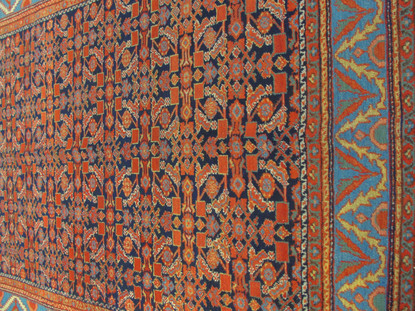A Melayer Carpet
Click image to enlarge it
Size:
5'0" x 11'0" - 152cm x 335cm
Origin:
Period:
C 1920
Materials:
Wool pile, cotton warp & weft
Condtion:
Excellent
Price:
$4,999.
Item#:
11606
Notes:
The color is balance, the darker center in opposite of the lighter border. The same way the design is balance, a very busy Herati center and a pleasant border design with running water and trees.
The tribal weavers in Malayer were often Turkish, and they employed the Turkish knot, Gourde, to weave these creations. The Gourde is a symmetrical knot, as opposed to the asymmetrical knot of many traditionally Persian creations. Additionally, antique Malayer rugs regularly enjoy a low cut pile. Weavers trimmed the pile in order to enhance the appearance of the design. In addition to a broad range of design and color, these rugs were designed technically to enhance the artistry of the woven design. Local weavers produced a spectacular array of traditional patterns ranging from dense allover moifs to lozenge-shaped medallions that are placed over chic monochromatic grounds. Although angular motifs are favored, some of the finer Herati patterns feature subtle curvilinear details. One of the charming constants of antique Malayer rugs is the importance placed on creating richly detailed borders that rival the spectacular patterns featured within the field. Weavers in Malayer consistently put great effort into creating exquisite borders.
Herati-pattern has its name from the city of Herat in Northwestern Afghanistan. It is a common pattern found mainly on handmade carpets from Iran. It comprises of a flower inside a rhomb surrounded by four acanthus-leaves. These leafs are sometimes called fishes, because of its similarity, and the pattern is often used on carpets with an all-over/repeated motif.







